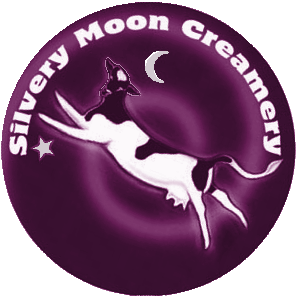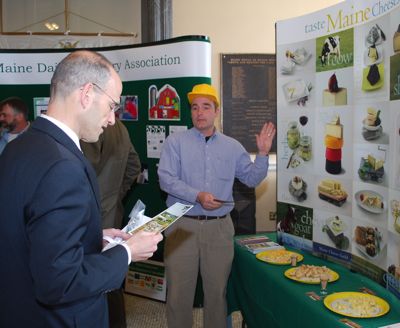Category Archives: Guild
Info about the Guild
Silvery Moon Creamery Featured in Daily Grommet
 Greetings from Silvery Moon Creamery!
Greetings from Silvery Moon Creamery!
We’re pleased to announce that Silvery Moon Creamery is being featured at The Daily Grommet web site.
The folks at Daily Grommet find innovative and interesting products and tell the story of a different one each day. They fell in love with our cheese and we’re thrilled to be their featured story today through the weekend.
Please take a moment to check it out and leave a comment if you like. There’s no one better than our loyal cheese loving fans to spread the word about our curd!
Cheers from the cheesevat!
–Jennifer Betancourt
Head Cheesemaker and Co-owner
Silvery Moon Creamery
Ag Day At the Legislature 2009

Above you can see me telling Governor Baldacci about how Maine Cheese is such a great dairy success story!
Along with about thirty ag focused groups, I spent the morning of March 31 offering samples of Maine cheese (thanks to State of Maine Cheese Co., and Pineland Farms) to state house workers and legislators (in between sessions) and asking them if they’d like to know more about Maine cheese. Most of the did, and most of them very much liked the samples of the cheese.
For the legislators, I handed them one of the color Guild brochures and pointed out that when we printed the brochure two years ago there were 20 licensed cheese makers in Maine (as it states in the first paragraph of the brochure), but that currently there are 37 licensed cheese makers, which shows how many new folks are stepping up and putting more Maine milk to good use.
Continue reading